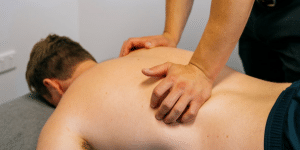Tired… Is it a sleep problem or could it be something else?

A common response to someone reporting that they are tired is simply… you need to get more sleep! If only it was always that easy.
Sleep disruption
There are many factors that can affect our sleep which may include:
- Stress
- Noise, light, heat/cold
- Family/social concerns
- Social or work commitments
- Long hours
- Night work
- Alcohol, caffeine and drugs
- Disease states (e.g. poorly managed diabetes)
- Sleep disorder
Identifying the cause of your sleep issue is very important to guide the strategies to address the problem.
How much sleep is enough?
One of the difficulties of a busy lifestyle is to get enough sleep, another is to find time to exercise. Sleep experts say that seven or so hours of uninterrupted sleep is usually enough sleep for most healthy adults.

If you are getting seven or more hours of sleep but still waking up tired, it might be a sleep quality issue.
Poor sleep quality can be caused by a variety of factors including disorders sleep. If you are experiencing any of the following symptoms it would be recommended to consult with your GP:
- Daytime sleepiness with more than 7 hours’ sleep
- Morning headaches
- Frequent waking (>1-2 per night)
- Indigestion
- Restless legs
- Dry mouth of throat
- Snoring
- Gasping or choking
Strategies that may help you sleep better
DO
- Develop a bed time routine – Plan to get 7 to 9 hours of sleep per day.
- Go to bed at the same time each day if possible. Set an alarm for when you should go to sleep, as well as, when you should wake. Chances are if you get to sleep close to your required sleep, you are unlikely to need an alarm to wake you in the morning.
- Take medication as directed
- Relax before going to bed
- Cool, dark, quiet room for sleeping. For shift workers it is recommended to:
- Light: light proof your sleeping room using blankets, paper, heavy material/drapes
- Noise: insulation, earplugs and white noise can be used to block or dampen all sound
- Temperature: the ideal room temperature is 18 to 24 °C
DO NOT
- Drink caffeine or alcohol before bed
- Smoke before bed
- Engage in stimulating activity just before bed (e.g. Facebook)
- Go to bed hungry or full
- Worry about sleep (this will keep you awake)
- Take medication that is not prescribed
Can physical activity help improve your sleep?
Many things affected sleep quality – such as stress, anxiety, depression, obesity, heart disease and diabetes – are all improved by regular exercise. Sleep experts think that the reduction in stress, anxiety and tension that results from exercise is the major reason exercise improves sleep quality.

For more information, please contact us here or book an online appointment






